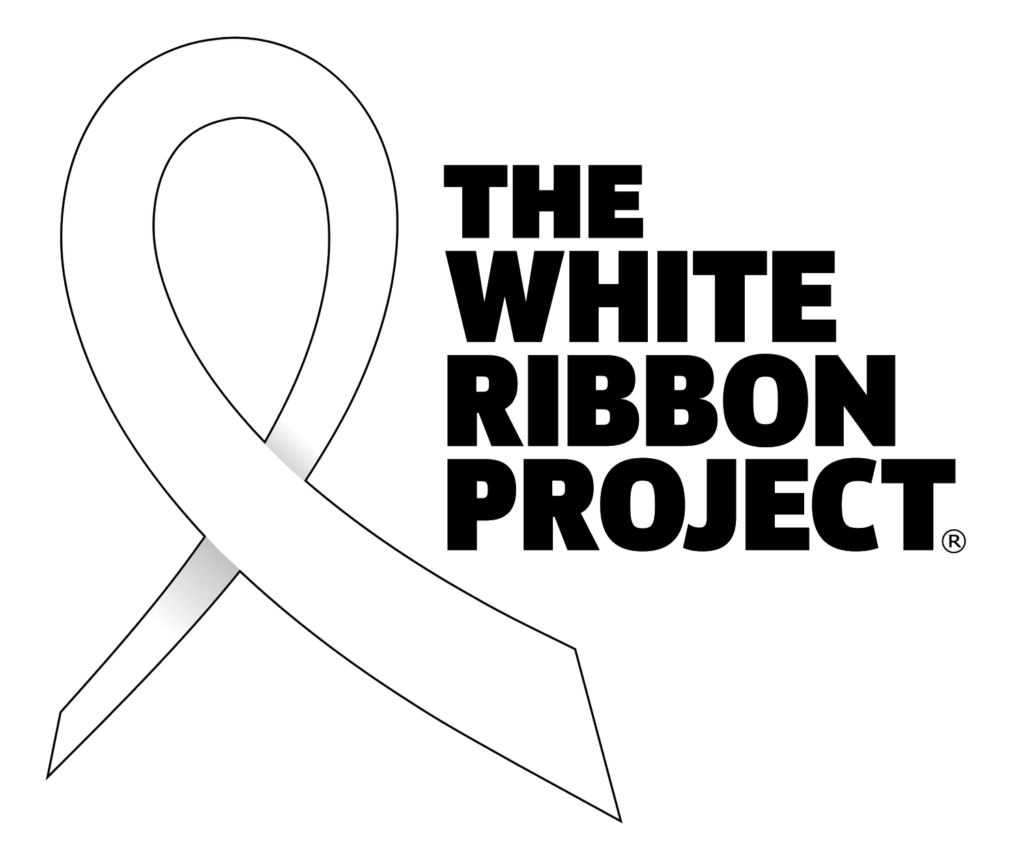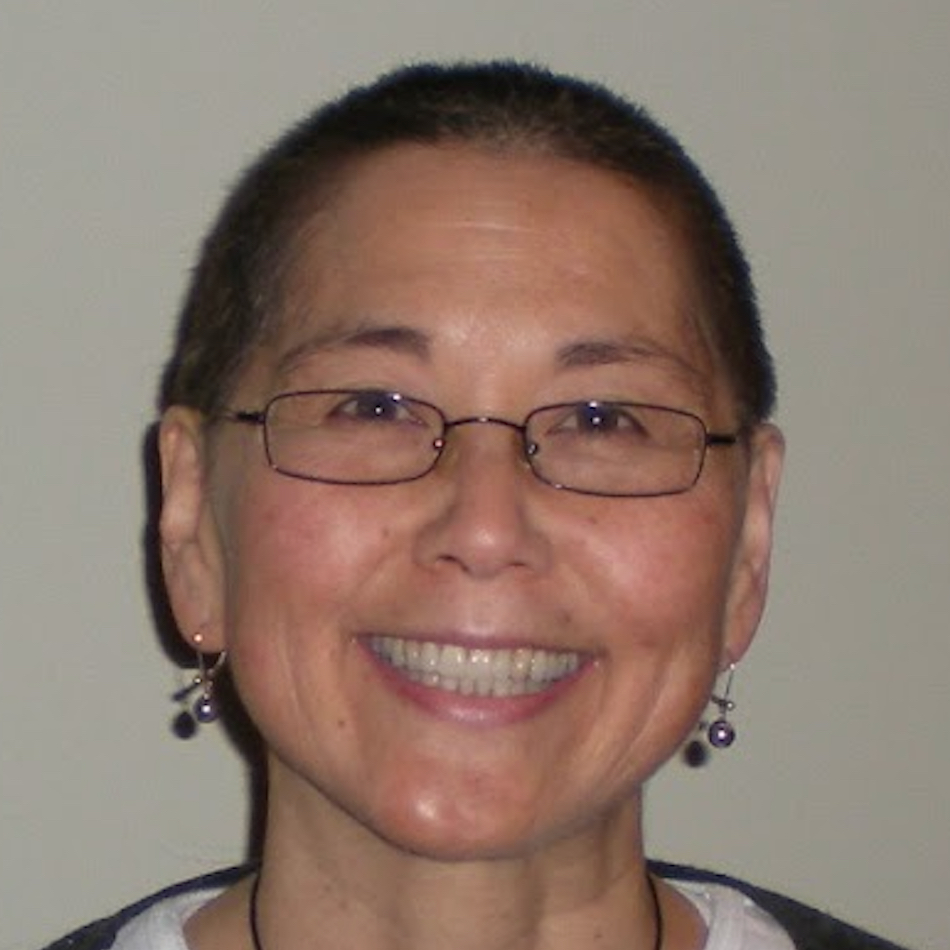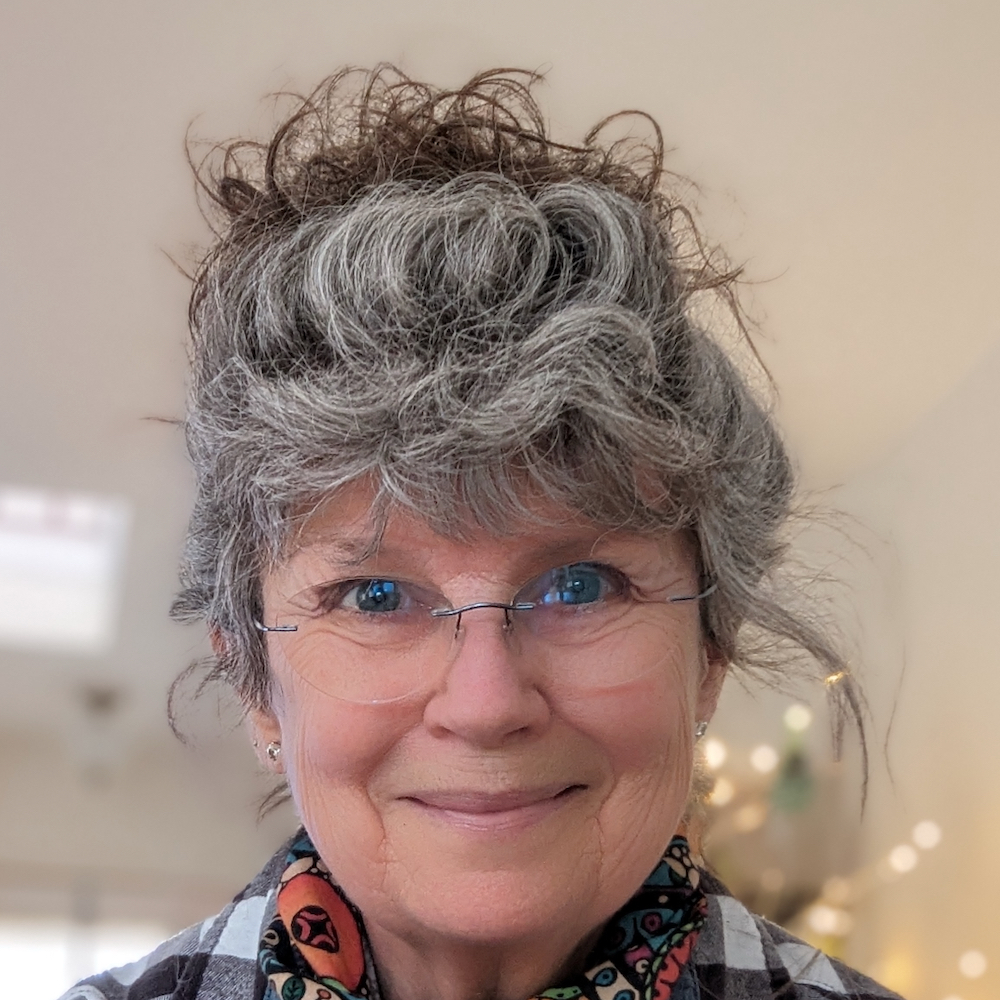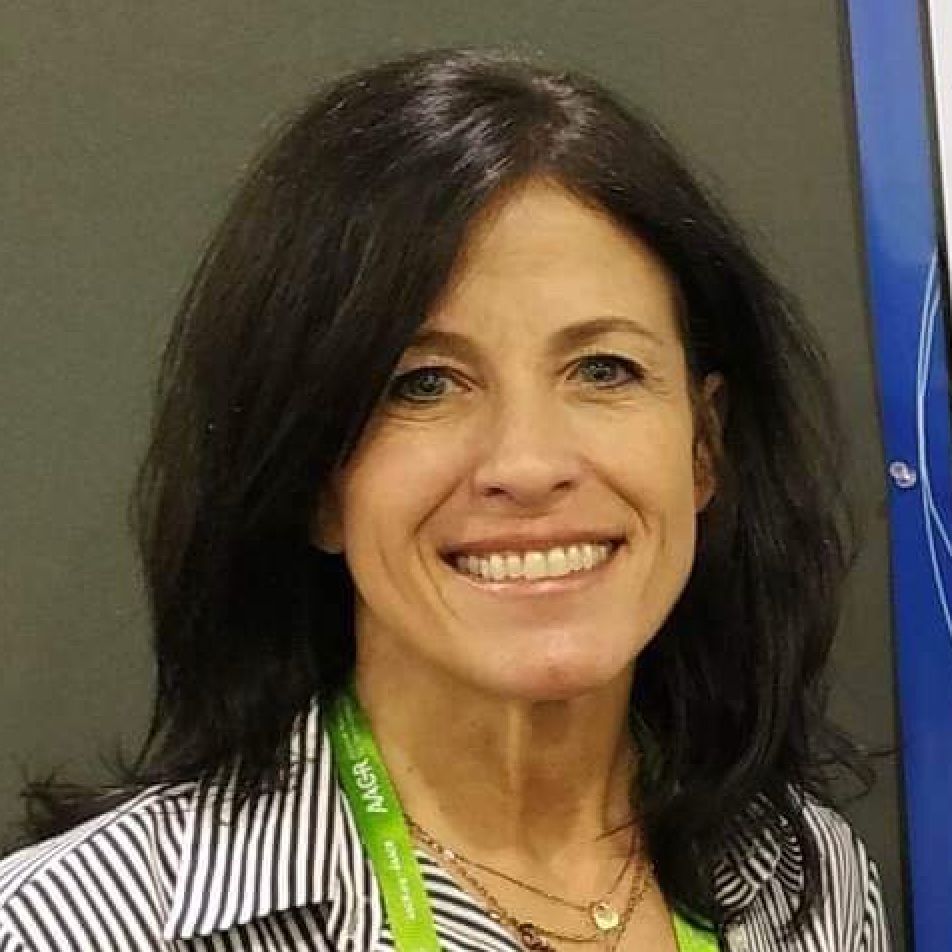Calvin’s Stage 1 Lung Cancer Story
In 2020, at the age of 33, Calvin was diagnosed with stage 1 lung cancer after enduring four years of misdiagnosed symptoms, including frequent illness and breathing difficulties. His initial symptoms began in 2016, with a severe bout of illness in Germany leading to a pneumonia diagnosis. Subsequent cycles of sickness and treatments yielded no lasting improvement, and he was misdiagnosed with adult asthma. Despite consulting various specialists, it wasn’t until 2020 that further tests, including X-rays and pulmonology consultations, revealed a potential cancer diagnosis.
Interviewed by: Taylor Scheib
Edited by: Katrina Villareal
A biopsy confirmed a mass in his left lung, necessitating immediate surgery. In September 2020, his left lung was removed entirely via pneumonectomy. Recovery was arduous, requiring relearning basic functions such as walking and urination. The emotional toll on his family, particularly his wife who assumed caregiving responsibilities, was profound. Determined to recover for his two-year-old daughter, he sought trauma therapy to navigate the psychological challenges.
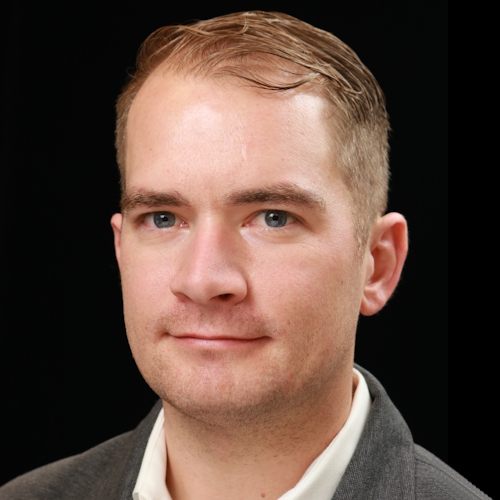
Living with one lung transformed his life. He now prioritizes low-altitude, climate-controlled environments to manage breathing and accommodate his family’s activities. He has since welcomed a second child and adjusted to his new reality with resilience. His advice underscores the importance of self-advocacy in medical care, urging others to trust their instincts, persist through diagnostic hurdles, and seek second opinions when necessary.
- Name: Calvin M.
- Age at Diagnosis:
- 33
- Diagnosis:
- Lung Cancer
- Staging:
- Stage 1
- Symptoms:
- Frequent illness (monthly cycles of sickness)
- Breathing difficulties
- Treatment:
- Surgery: pneumonectomy
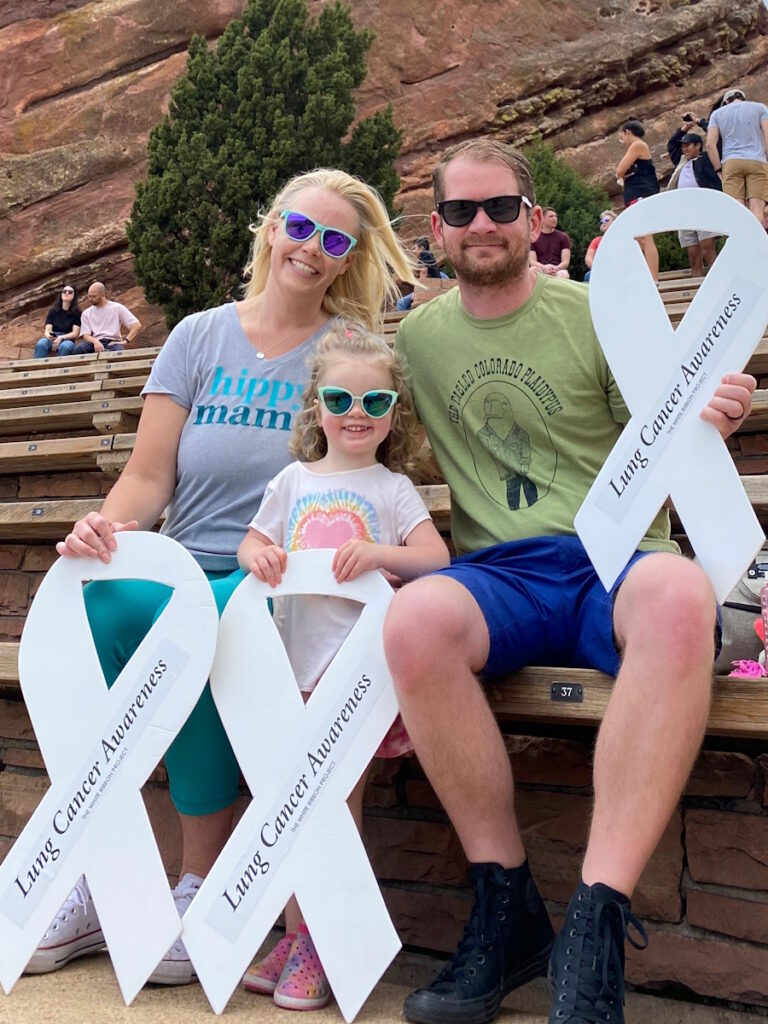
We would like to thank The White Ribbon Project for its partnership.
This interview has been edited for clarity and length. This is not medical advice. Please consult with your healthcare provider for treatment decisions.
Introduction
I was diagnosed with stage 1 lung cancer in 2020 at the age of 33.
Initial Symptoms
In 2016, I was traveling quite a bit for work. After a long flight to Germany, I wasn’t feeling too well and ended up bedridden for four days in a hotel room. When I arrived home, I immediately went to the doctor with the medication they gave me in Germany. My doctor in Denver looked at it and said, “It looks like you had pneumonia. Let’s treat you for that and run some tests.” After the tests, she said, “You have adult asthma. You had asthma as a kid, now you have adult asthma.”
In 2017, I kept traveling. I continuously went through a three-month cycle. I would get sick for a week or so in the first month. In the second month, we would change medications. In the third month, I’d feel okay. I kept traveling for work until COVID hit.
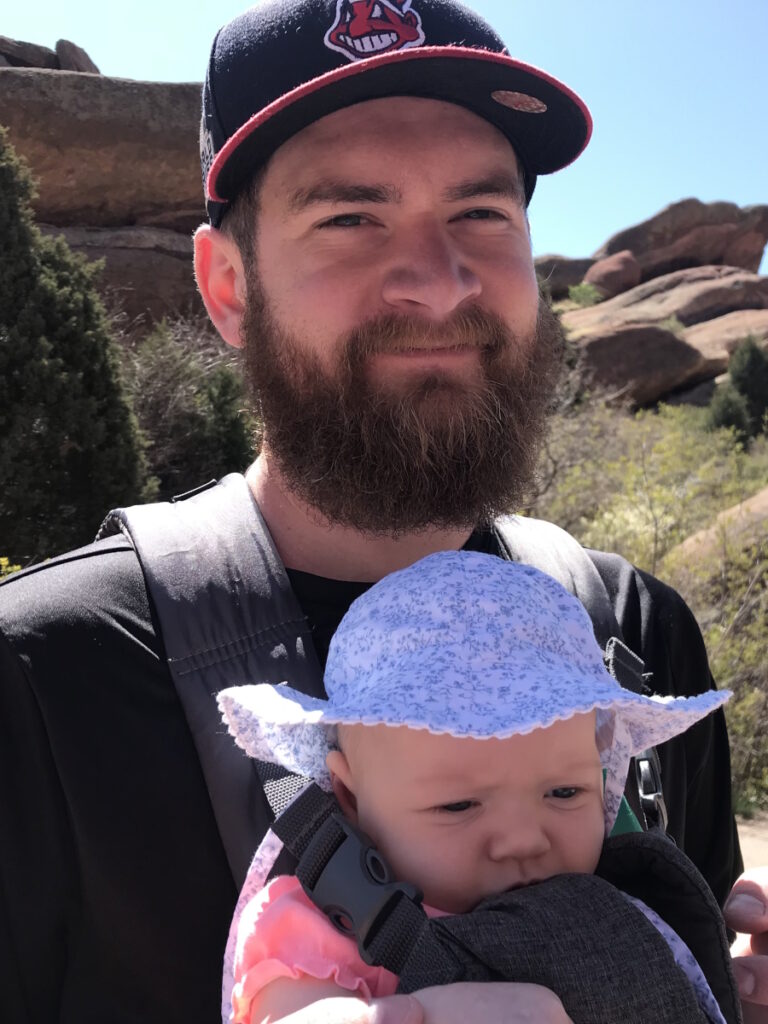
We went up to somewhere above Vail where the elevation was around 7,000 feet and I couldn’t breathe.
Calvin, Stage 1 Lung Cancer Patient
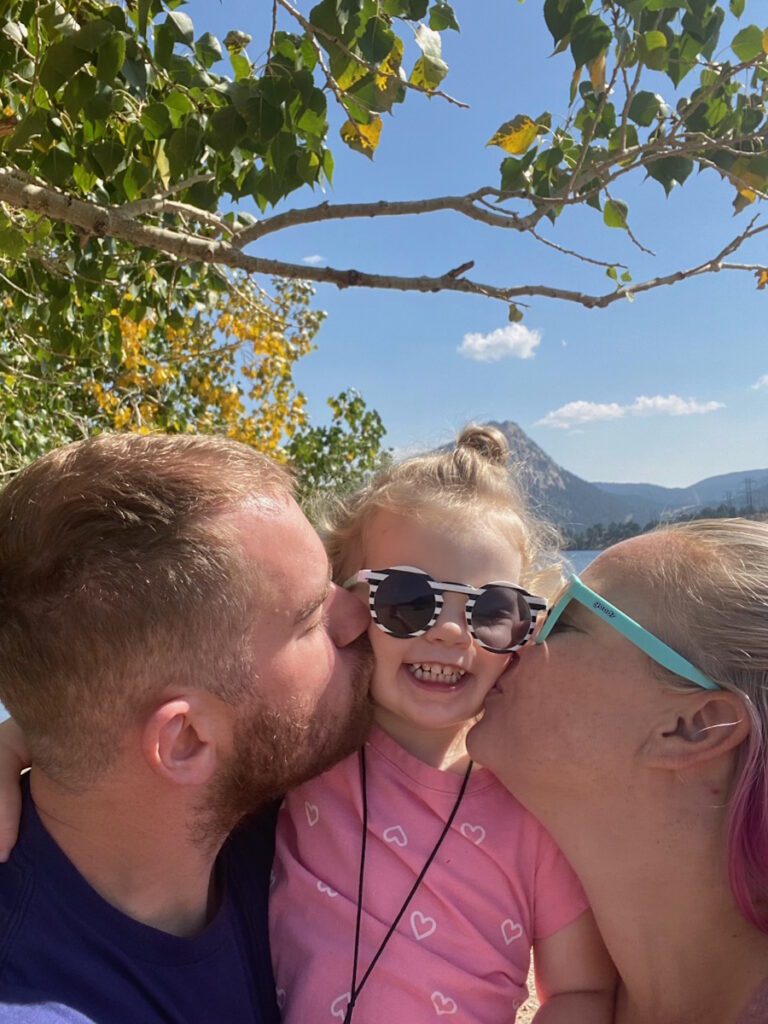
In April 2020, we were at an allergy and asthma center getting my daughter tested because she’s allergic to peanuts. I asked her doctor, “Can I get a meeting with you? I supposedly have had adult asthma for the last few years, but it’s not getting better. We’re not doing anything because of COVID and I’m still getting sick.” She ordered an allergy test, some asthma tests, and X-rays, and then told me to go to a pulmonologist.
After the pulmonologist ran some tests, she said, “You have one of three things. You have a fatal lung disease and you’ve got 6 to 12 months to live, you have cauliflower lung, which is what a lot of people get from vaping, or you have lung cancer. It’s the most probable option, so we have to do some tests.” This was around April and May 2020, so it wasn’t the easiest time to get in and out of medical centers. It took a while, but I was able to do all these different tests.
We went camping because that’s what we did during COVID. Since I lived in Denver, we went up to somewhere above Vail where the elevation was around 7,000 feet and I couldn’t breathe. I thought, “How is this possible? I’m not sick. I don’t have COVID.” We were testing all the time since we had a two-year-old then. We came back down and they said they needed to do a biopsy of my lung.
Diagnosis
They scheduled the biopsy for an hour and five minutes. As soon as they put the camera in, they saw a mass sitting over my left lung, so they stopped and pulled the camera out of my throat. The next thing they said was, “You have to come back in tomorrow. We have to remove this mass. We’ve done this a bunch, so we know what it is. We can’t tell you officially, but based on the color and the type, it looks exactly like cancer. We’ll have to take it out tomorrow. We weren’t prepared for this mass. We thought we were going to do a biopsy.”
The next day, they removed the mass and said they would get back to me within 7 to 10 days. The next Friday was the Friday before Labor Day weekend. My wife and I were sitting at home, twiddling our thumbs. It was the eighth day and we hadn’t gotten the test results back. We’re hammering our pulmonologist and everyone else to give us answers. At 5:07 p.m., the chief of surgeons called and said, “Hey, I’m sorry that it’s so late. We have the results. You have stage 1 cancer, but it’s the best outcome and it’s the easiest thing for us to treat.”
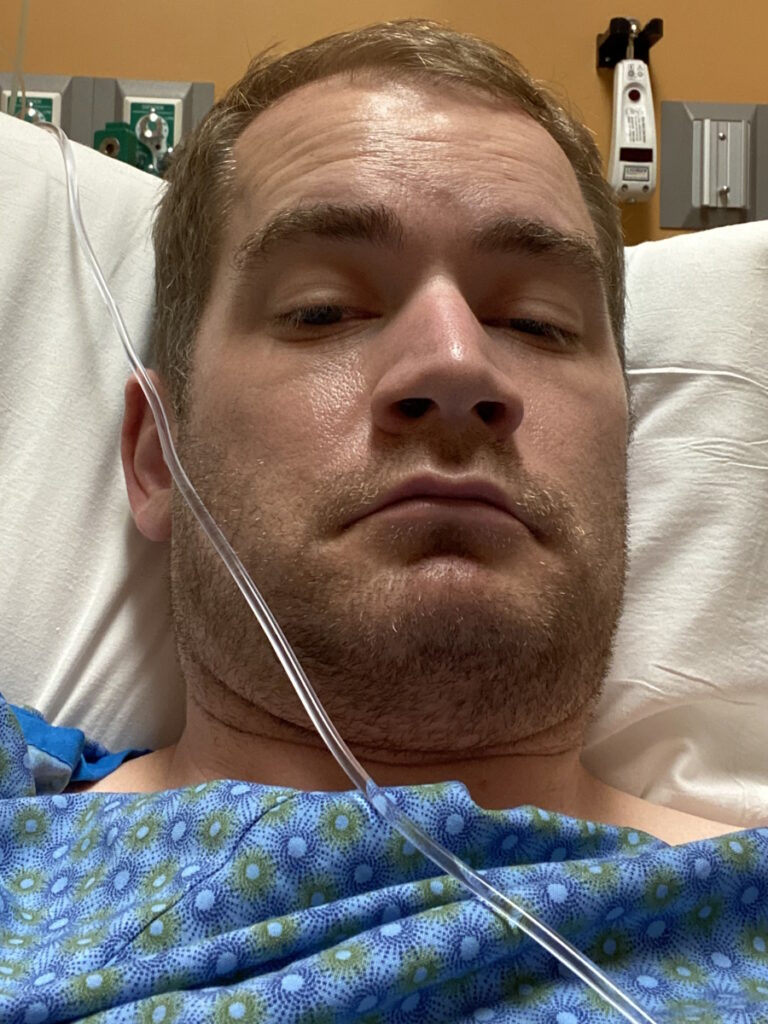
‘In 13 days, your life will never be the same. You need to grab your family, go wherever you want… you’re never going to be able to breathe this way again.’
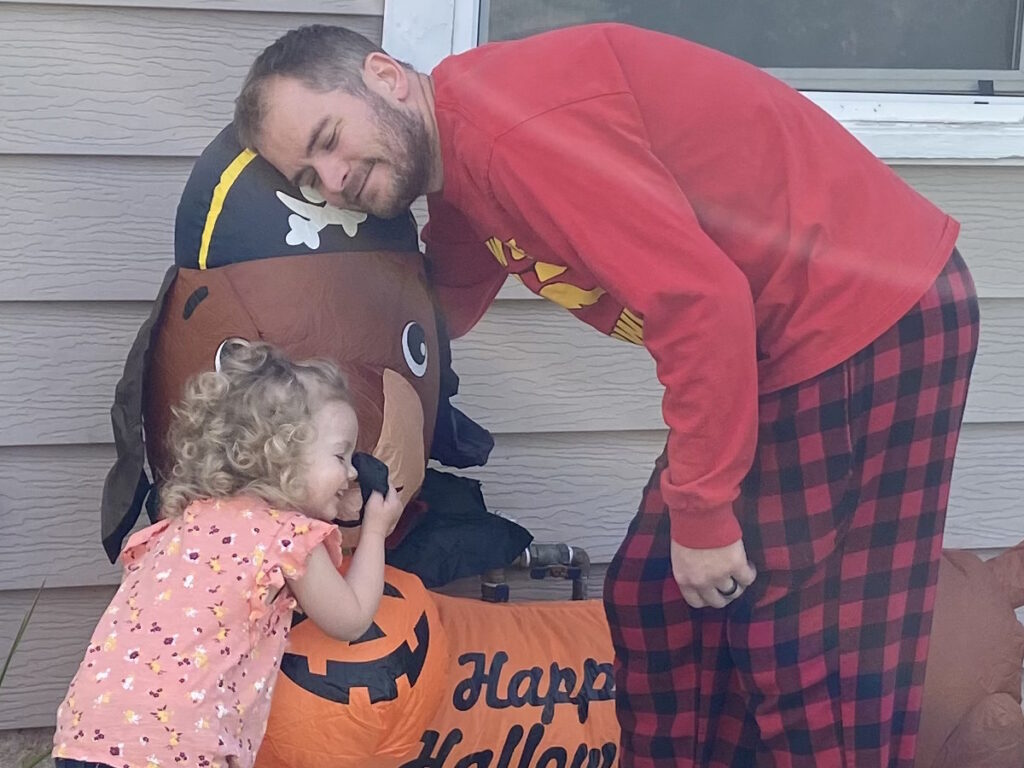
Discussing the Treatment Plan
When we walk into his clinic, he has everything decked out. He said, “Here’s the deal. In 13 days, you’re going to have surgery. We’re taking out your entire left lung. Here’s what we’re going to do,” and he mapped it all out. We asked, “Do we have a second opinion on this?” He said, “Look, I’m on the board of Colorado with your oncologist and pulmonologist. We’re the team. This is what you’re going to do. I got you booked in because I’m the chief of surgeons here and I own the books. This is your appointment time. I’ll see you in 13 days on Thursday.”
Then he asked, “Where do you work?” I told him where I work and he asked, “They’re not going to shut down without you, are they?” I told them that they’d be fine. He said, “Here’s what you’re going to do. You’re going to walk out of this office. You’re going to call your boss and say, ‘I’ll see you in six months,’ or whatever time you can do because in 13 days, your life will never be the same. You need to grab your family, go wherever you want, see the leaves change, and go to altitude because you’re never going to be able to breathe this way again.” The mass was moved so I could breathe.
I was at the point that a lot of people go through, which is, “Wait, I feel amazing. You removed the mass. Can I wait for science? Can I wait for something to come in and fix this?” I asked him that and he said, “If you do, you’ll end up with stage 3 or 4 cancer and you will die. Don’t be an idiot.”
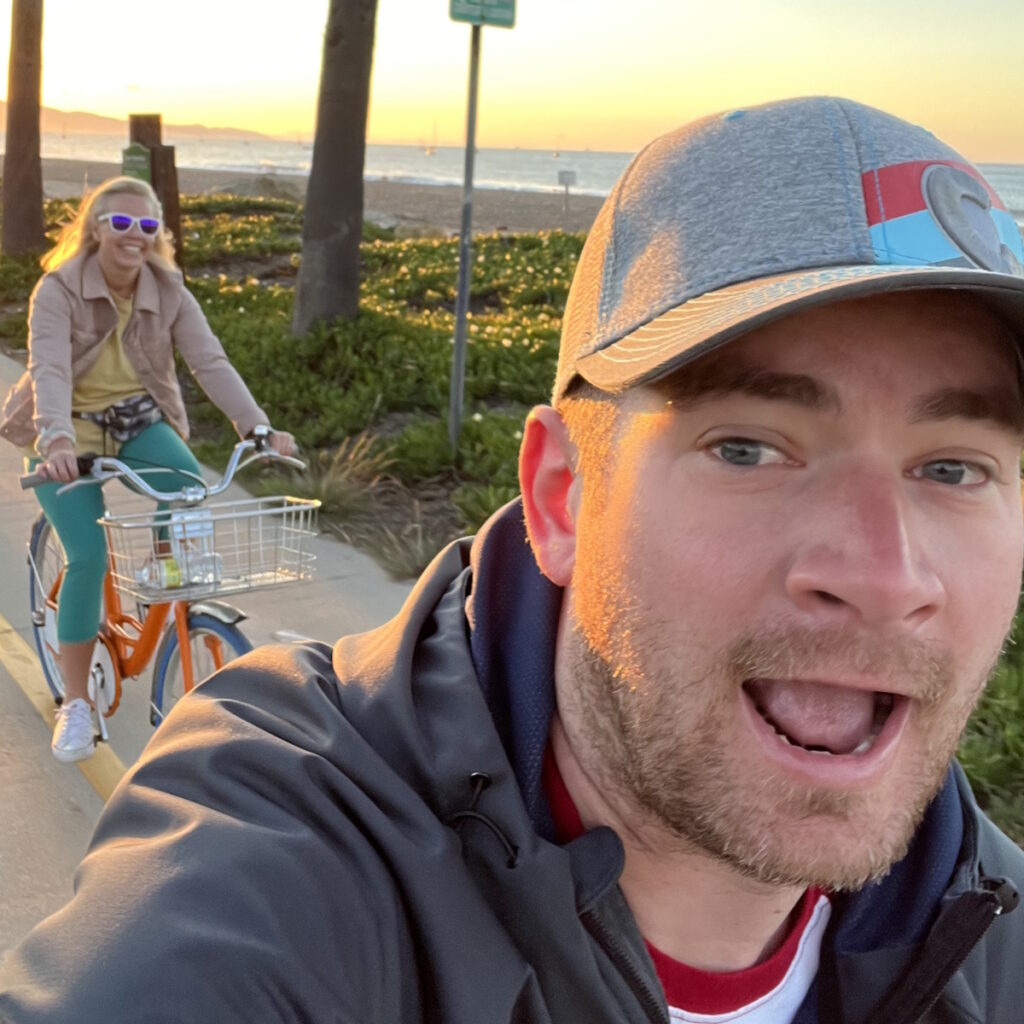
My wife went into full caregiver mode. It’s missed how much caregivers give, how much they put in, and what they’re going through.
Calvin, Stage 1 Lung Cancer Patient
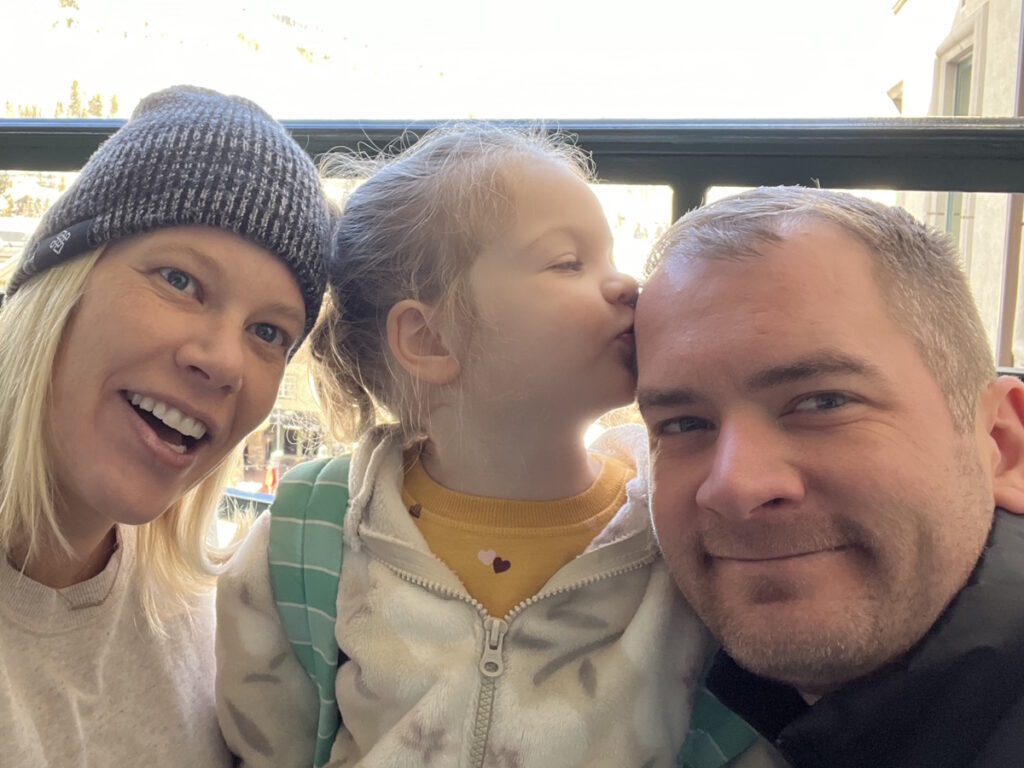
Reaction to the Diagnosis
At the time, our daughter was two. My immediate thought was: what are the next steps? Lung cancer is thought of as fatal. In the lung cancer community, we talk a lot about the stigma that comes with it. I’ve never smoked. Then my thoughts went to, “What did I do wrong? What did I do to cause this? How do I stop it?” You can’t. At that point, it’s done. Finally, it came down to, “Is my wife going to be stuck raising our daughter by herself?”
There’s a seven-month part of my life that is completely blacked out, especially after surgery and the meds I was on. I don’t remember a lot of it, but I was in a lot of shock. One of the first things I did was to reach out and find a trauma therapist to get ahead of it because I knew it was going to be bad. My wife went into full caregiver mode. It’s missed how much caregivers give, how much they put in, and what they’re going through.
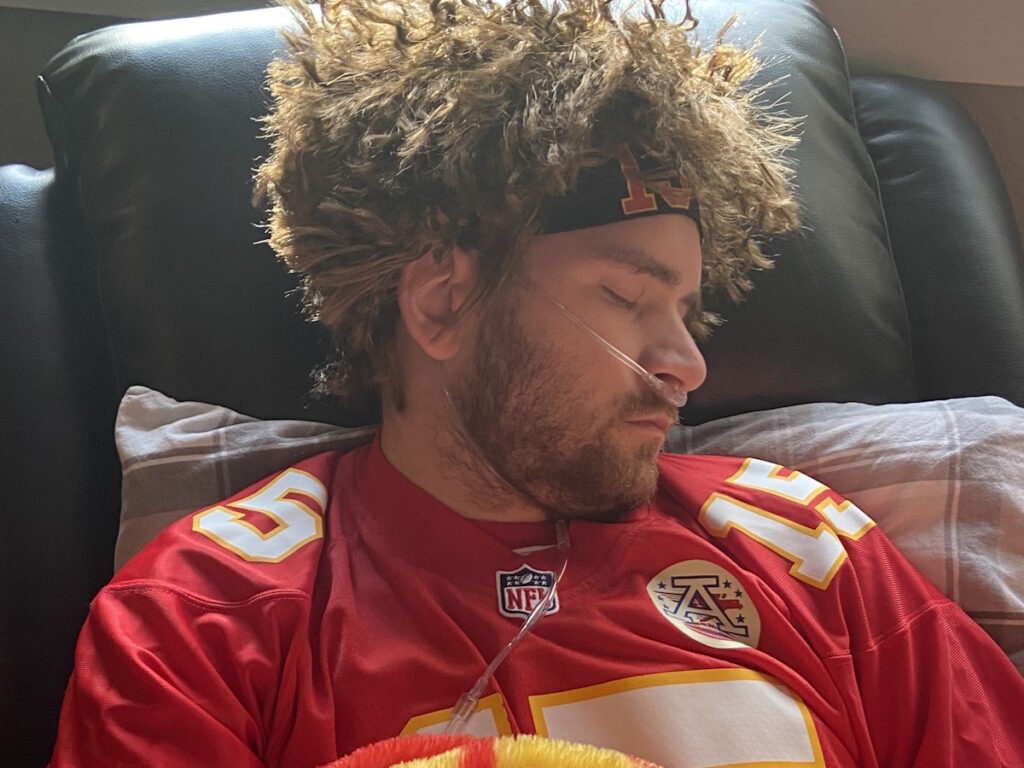
I’ve never only lived with one lung. I don’t know what the reality of that is.
Calvin, Stage 1 Lung Cancer Patient
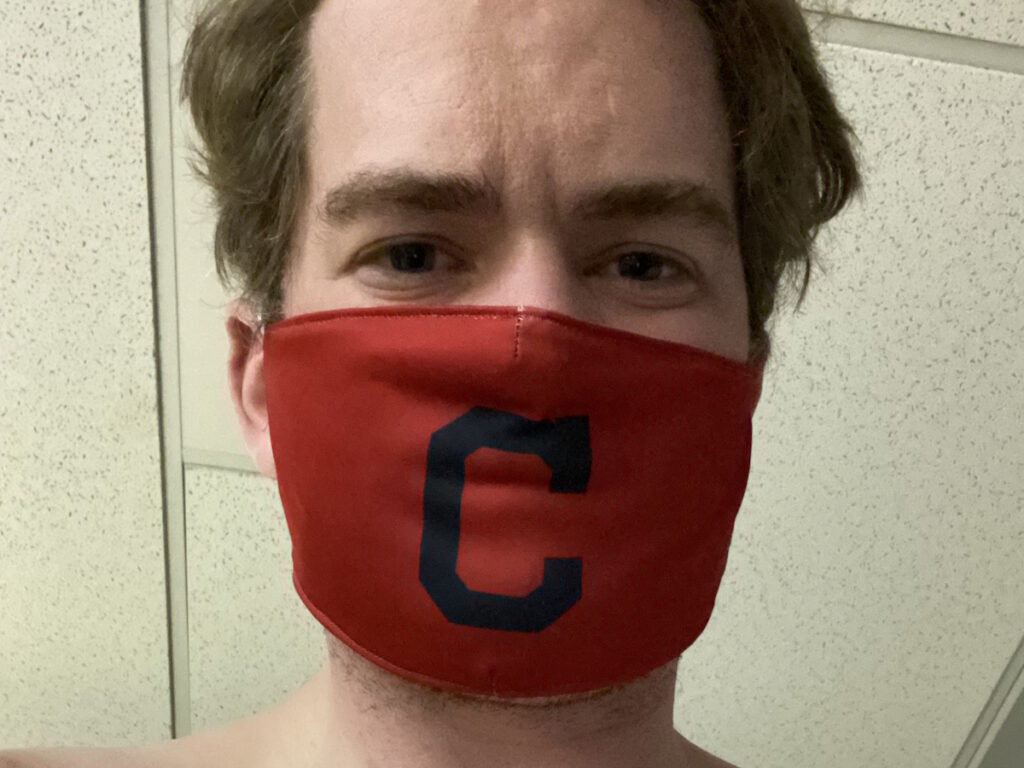
Pneumonectomy
They took out my entire lung. I’m knocked out and my wife had to go through all of these emotions, which is way worse than anything in the moment. It was rough for her. They put me in the ICU for a day and a half and then I was in a regular room for five days.
I didn’t know what to expect as a young 30-year-old athlete who played sports his entire life. You get through injuries and it hurts, but you know you’ll get through it. I’ve never had major surgery. I’ve never only lived with one lung. I don’t know what the reality of that is.
Recovering from Surgery
I had to relearn how to walk, to urinate, and to do everything. Nothing was working. It was difficult having to relearn those, but not being able to see anyone else, particularly my daughter, was more difficult. My mom sat in the parking lot because she couldn’t come in since they only allowed one person.
If I had known four years prior when I first was getting sick, if they had immediately diagnosed and figured it out, I don’t know if I would have cared as much because I didn’t have my daughter then. Recovering from surgery was all about needing to get back to as best as I could be because I’m her dad. I’m the one that she plays with. I needed to be able to still do these things.
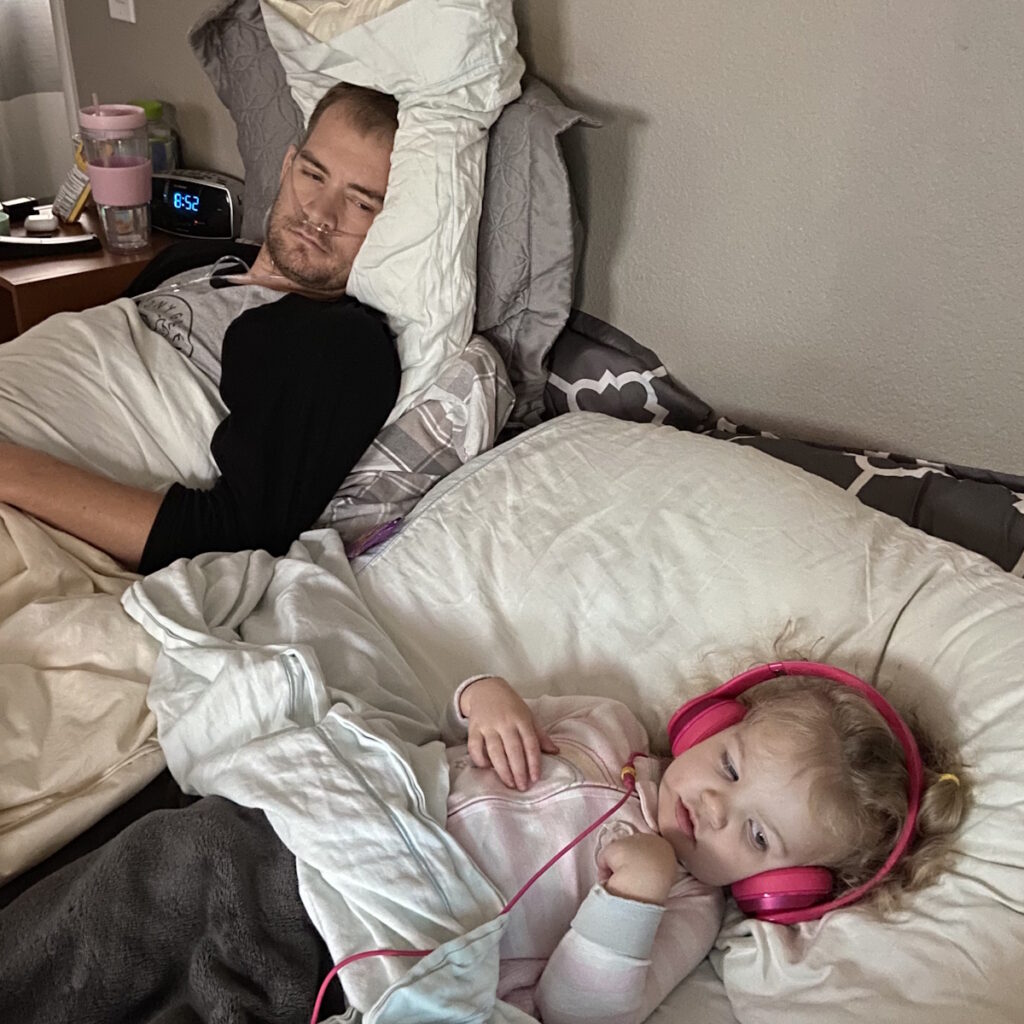
If you believe something is wrong, if you listen to your body and something is different, go through every process to figure it out.
Calvin, Stage 1 Lung Cancer Patient
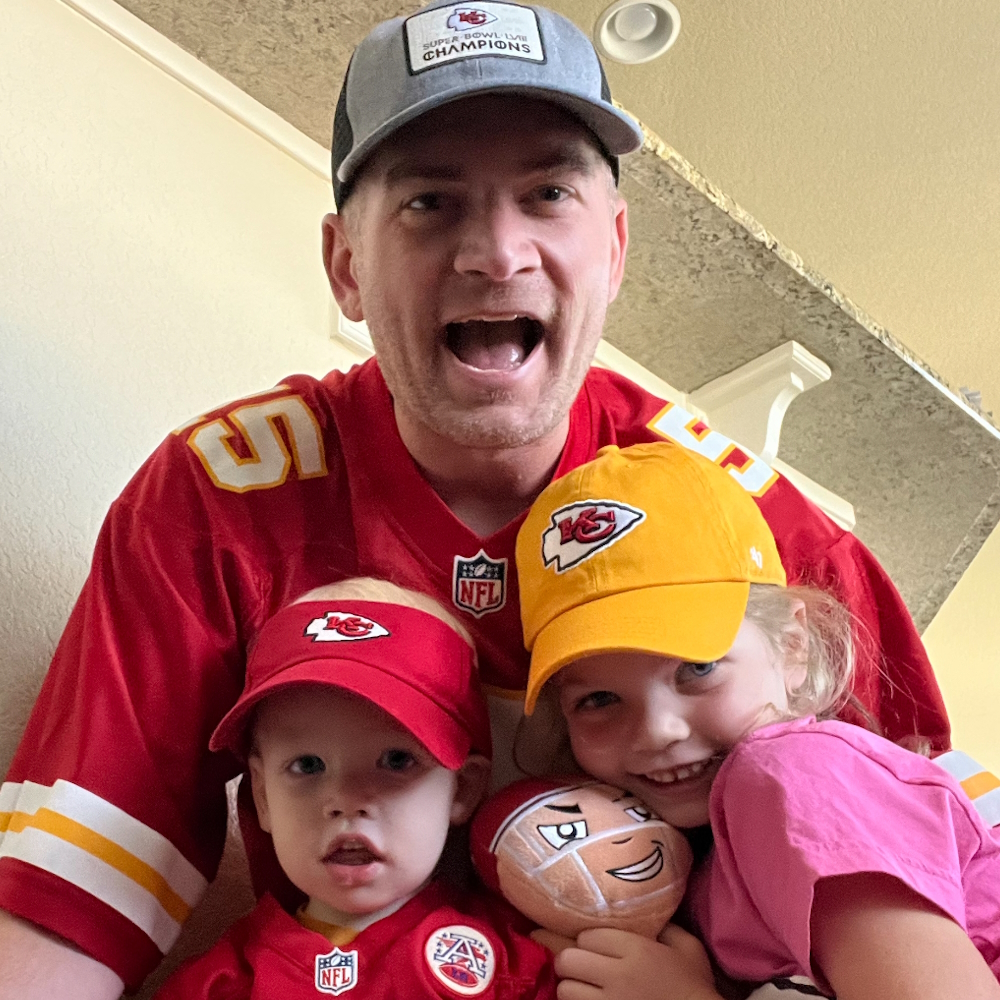
Living with One Lung
Vacations are different. Getting to sea level is always amazing. We plan our trips based on where I can operate well. For example, I can’t go to Mexico anymore because I can’t breathe. I need to sit in an air-conditioned room because that’s where I can breathe.
I have a one-and-a-half-year-old son now. I can sit and throw a ball with him and play horse, but it comes with a lot of breaks. We make sure that what we do is essentially climate-controlled. It’s different and you have to work through it.
Words of Advice
If you believe something is wrong, if you listen to your body and something is different, go through every process to figure it out. Don’t be arrogant or cocky about where you believe you are and don’t blindly trust every medical professional you find. Some rules and things get in the way of how you can get the testing you need. Don’t go through the course because that’s what they tell you to do. Get hungry. Find the information. Advocate for yourself.
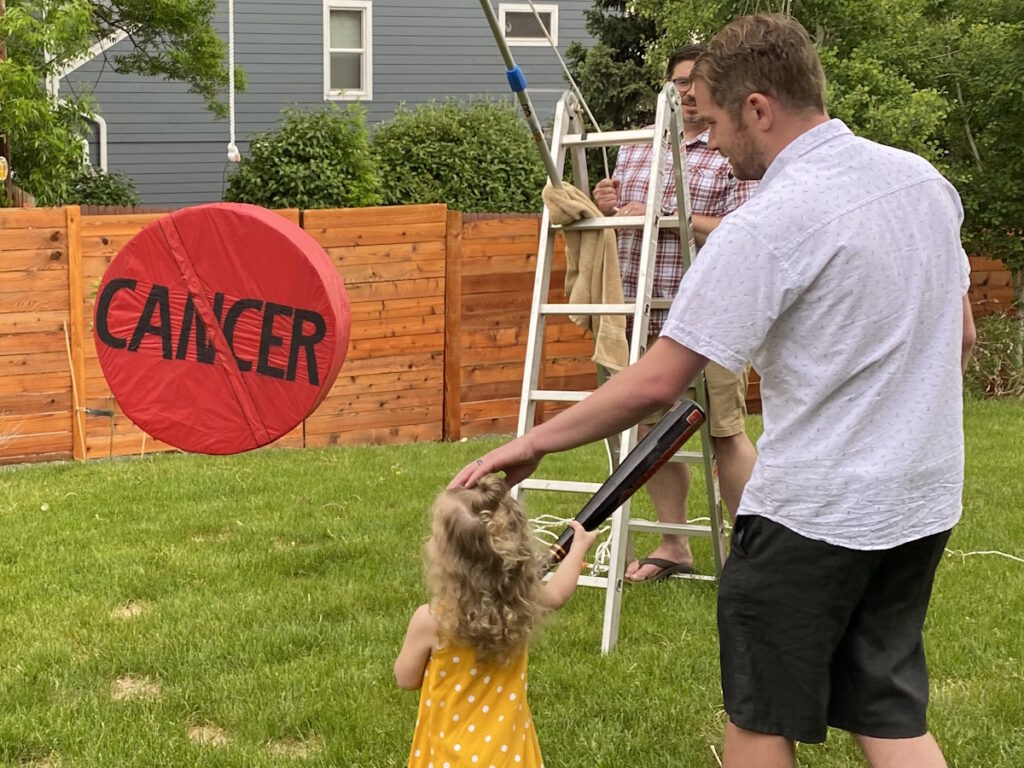
Special thanks to The White Ribbon Project for its partnership.

Inspired by Calvin's story?
Share your story, too!
More Stories with The White Ribbon Project
Luna O., Non-Small Cell Lung Cancer, ROS1+, Stage 4 (Metastatic)
Symptom: None involving the lungs; severe abdominal pain
Treatments: Chemotherapy, targeted therapy
Calvin M., Lung Cancer, Stage 1
Symptoms: Frequent illness (monthly cycles of sickness), breathing difficulties
Treatment: Surgery (pneumonectomy)
Jill F., Lung Cancer, EGFR+, Stage 1A
Symptom: Nodule found during periodic scan
Treatments: Surgery, targeted therapy, radiation
